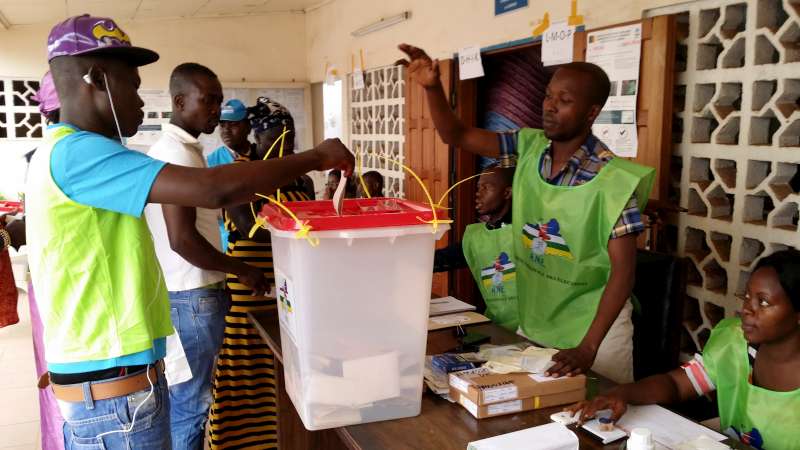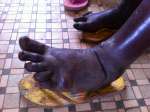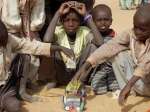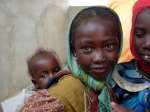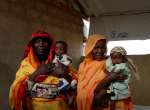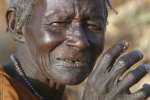- Text size
 |
|  |
|  |
| 
- Français
Thousands of refugees vote in second round of CAR presidential election
News Stories, 15 February 2016
GENEVA, February 15 (UNHCR) – Thousands of refugees took part at the weekend in the second round of Central African Republic's landmark presidential election, which could usher in a new era of peace and reconciliation after years of violence, suffering and forced displacement, and lead to their return home.
Reports from UNHCR staff involved in election facilitation in Cameroon, Chad and Republic of Congo said many of the Central African Republic refugees eligible to vote in those three countries cast their ballots on Sunday.
But initial indications were that turnout was not as high as in the first round on December 30, when 33,000 voted, or more than 60 per cent. This may be because the preferred candidates of most of the refugees were knocked out in the first round.
"This election, including the participation of refugees, is a pivotal event in the tragic recent history of the Central African Republic, reflecting a collective will to move on and rebuild a country with strong government, security, rule of law, inter-communal harmony and economic growth," said UNHCR Africa Director Valentin Tapsoba.
"We hope the voice of the people will be listened to and acted upon," he added, while stressing that the elections could lead to their return to play a part in rebuilding the country. Full results are not expected until mid-March.
In Chad, refugees voted peacefully, but in fewer numbers than in the first round, when some 67 per cent cast ballots in a race pitting two former prime ministers Faustin Touadera and Anicet Dologuele against each other. Both have pledged to work on refugee return and reintegration as well as restoring security and boosting the economy in a country rich in natural resources.
In southern Chad's Gore (Timberi and Bere) and Maro areas, 3,814 refugees voted (36 per cent turnout); and in Haraze, 789 (45 per cent ) while in the capital of N'Djamena 247 refugees voted out of 614 registered (40 per cent turnout against 78 per cent during the first round).
Turnout was also lower in Republic of Congo, where about 7,100 CAR refugees were registered to vote, many of them in Betou and Ikpembele, the main refuge hosting areas.
In Cameroon, with more than 29,500 registered voters, people seemed excited by the prospect that their vote would help strengthen the popular determination to lay foundations for peace. "I am really happy to vote. It gives me hope that peace is near," said 35-year-old Bere Ramadji at a polling station in the Cameroon capital, Yaoundé.
"If all goes well, I want to be back in Bangui before the end of the year," he added, echoing the thoughts of many. Thousands of refugees voted in Cameroon on Sunday, but the final second round figure is expected to be a few thousand less than the 20,400 refugees who cast a vote in the first round.
Some 115,150 refugees in Chad, Cameroon and Republic of Congo were eligible to vote in the election, nearly half of whom were registered to vote by the Central African Republic's National Election Authority. UNHCR's role in the election was strictly humanitarian and non-political. The agency informed refugees about the electoral process, facilitated their participation and helped ensure the voluntary nature of the electoral process in a safe environment.
Click here for an infographic on the participation of Central African Refugees in CAR’s elections
